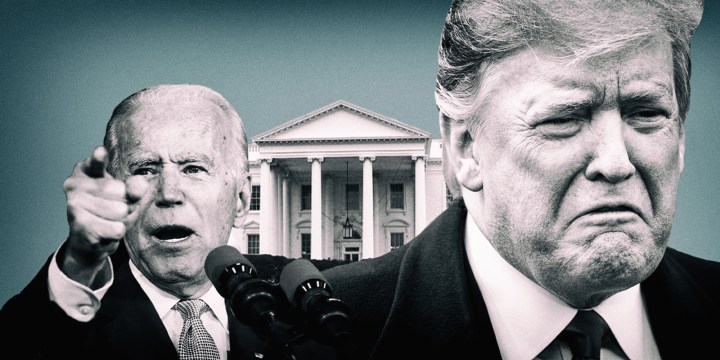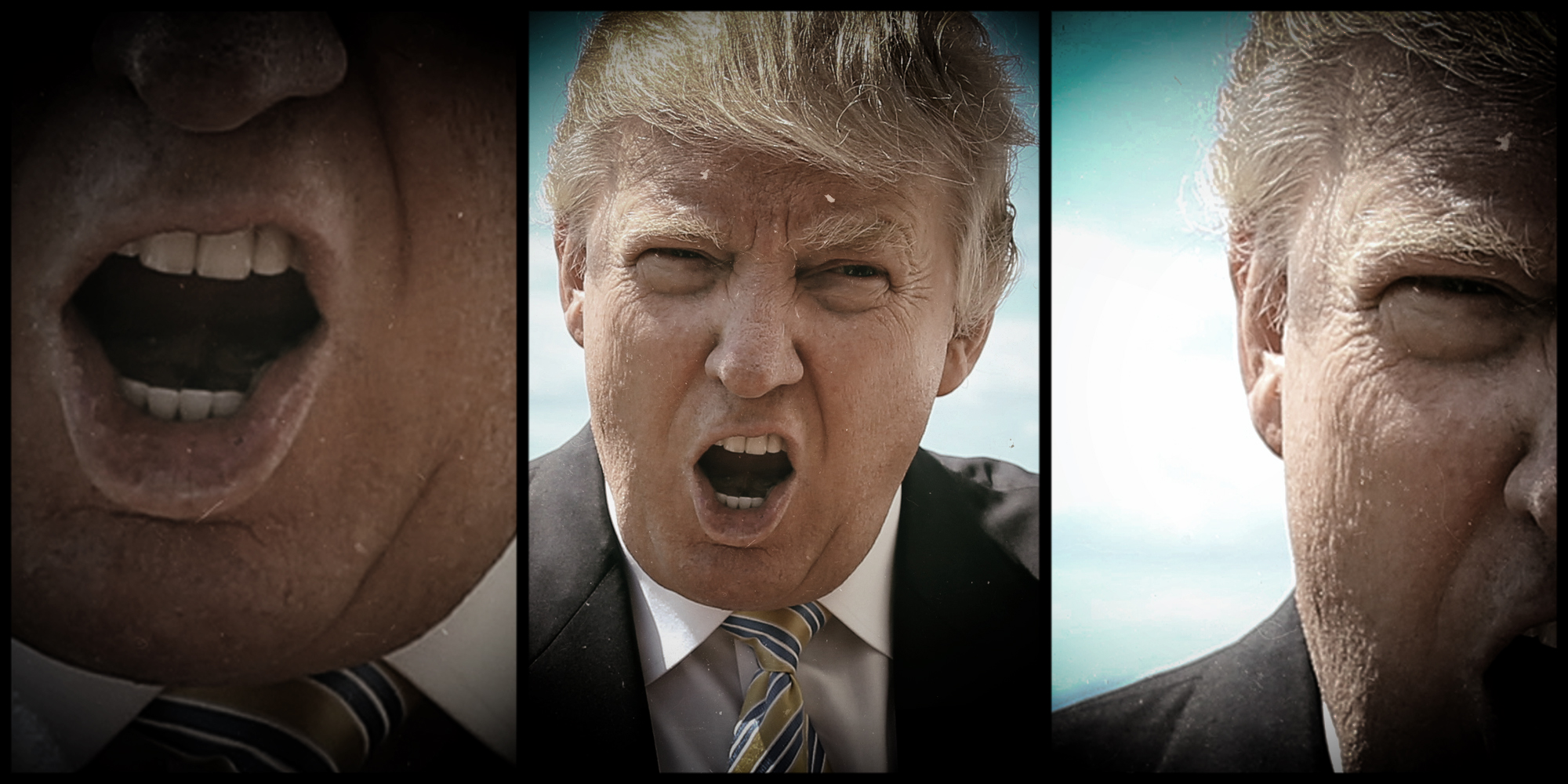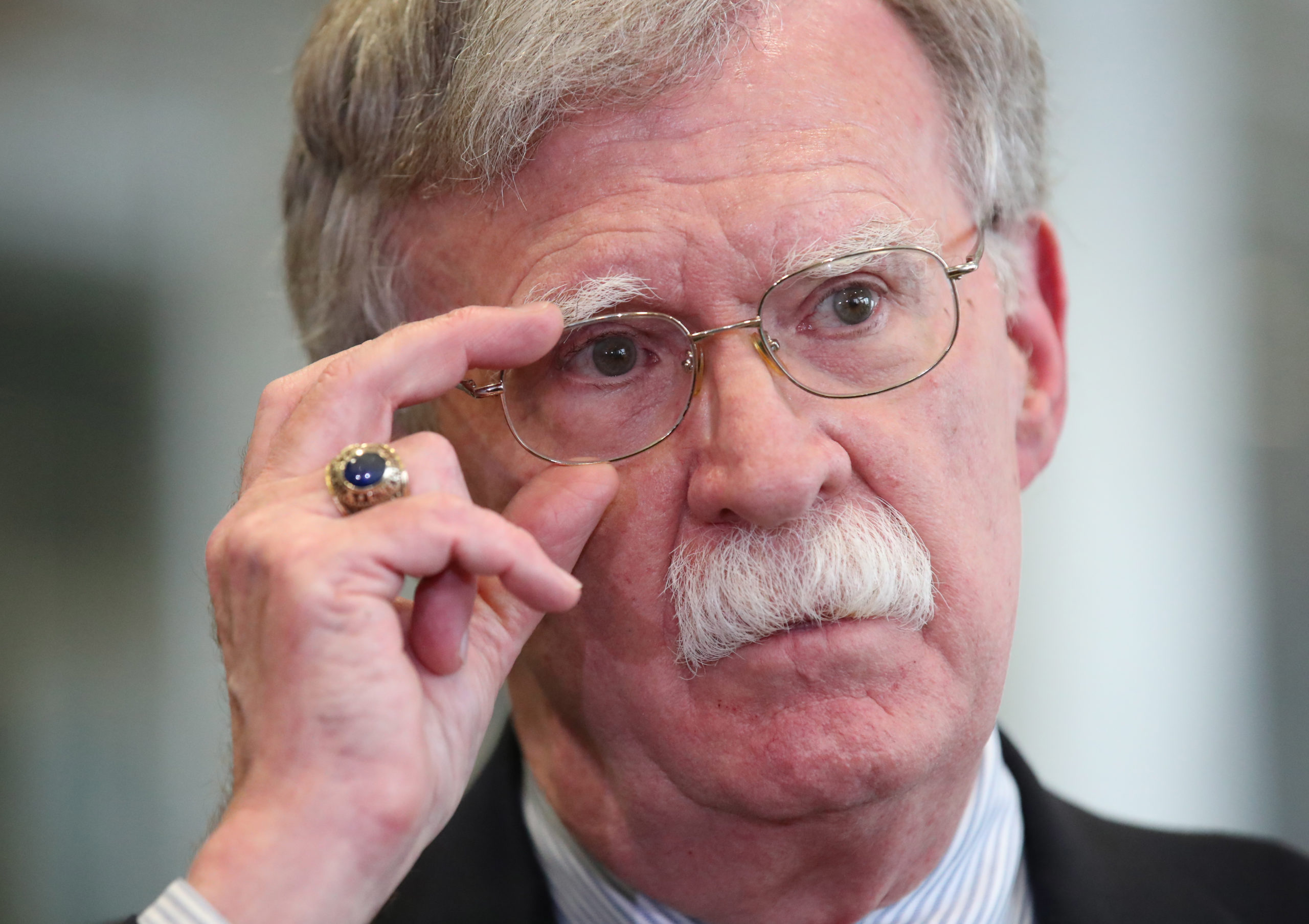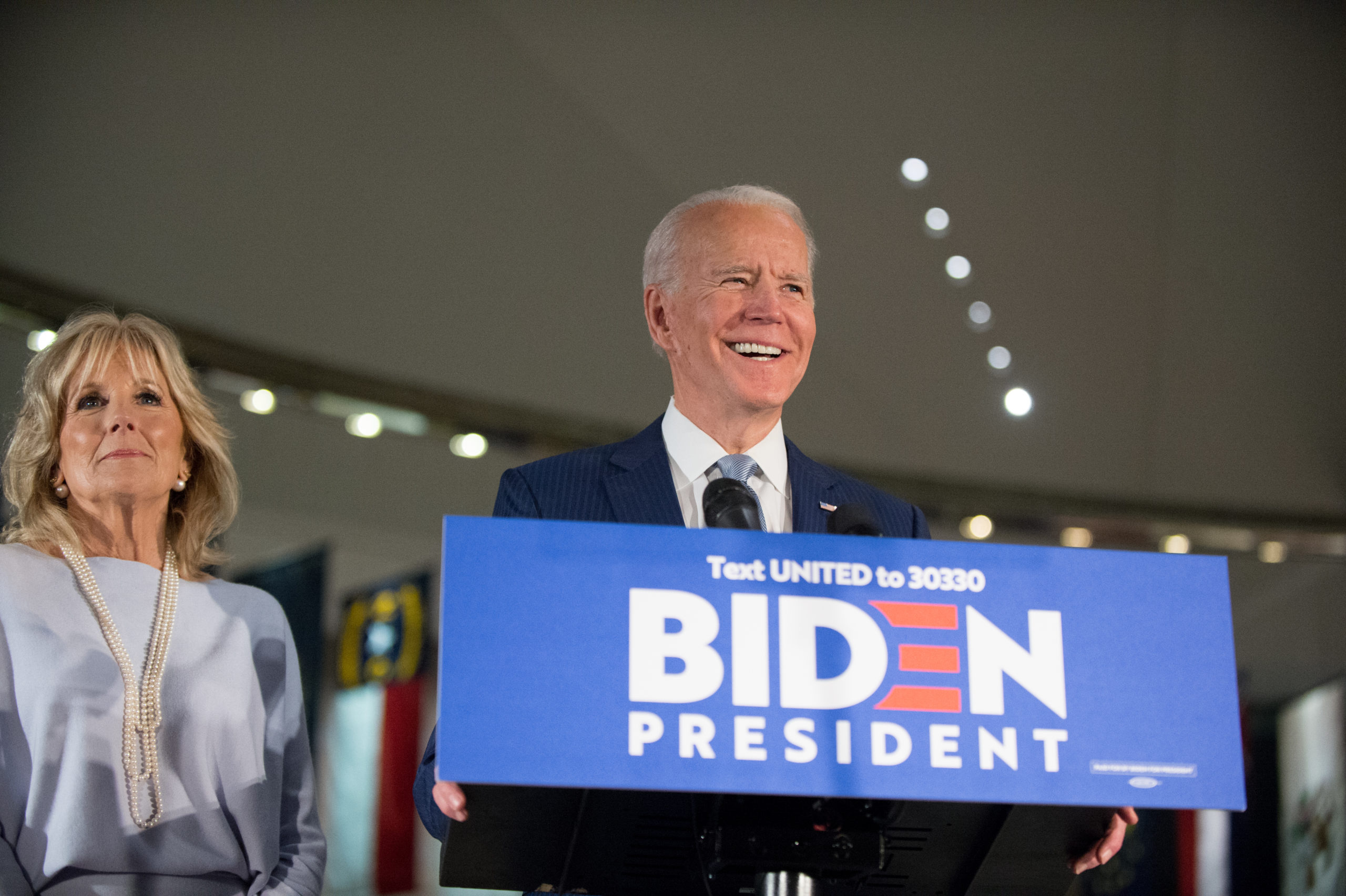US PRESIDENTIAL ELECTIONS
Trump vs Biden: Ill temper squares up against temperament

Presidential character is a crucial part of how the president performs the job. We consider the crucial elements of this and weigh Joe Biden and Donald Trump on that measuring scale.
At the age of 92, after some three decades on the Supreme Court, Justice Oliver Wendell Holmes famously remarked of President Franklin Delano Roosevelt that he had a second-class intellect, but he brought to the job a first-class temperament. Despite the seeming put down in this judgment, Holmes meant this as a compliment and a judgment of the most important characteristic needed by the nation’s leader in midst of its most difficult economic and social challenge in generations. For Holmes, it was an expression of what a president’s most important attribute must be to be a successful leader at this time of great national testing.
Or consider what former President Bill Clinton wrote in an essay for Time about FDR (and Obama) almost a decade ago, as the country was in the throes of “The Great Recession”, that was a period nearly as troubled as the one we are living through now.
As Clinton said, “Besides having a deep personal connection to ordinary citizens, Roosevelt got the big things right. When he came into office during the Depression, he saw that the ills of the country could not be addressed without more aggressive involvement by the government. He ran for President as a fiscal conservative, promising to balance the budget. But unlike his predecessor, he quickly realized that, with prices collapsing and unemployment exploding, only the Federal Government could step into the breach and restart the economy.
“Roosevelt also knew that in a highly dynamic time like his — or the one we’re in now — you have to do a lot more than one thing at a time. I was often criticized, just as President Obama is now, for trying to do too many things at once. Roosevelt understood that in a complex and perilous situation, you have to be able to walk and chew gum at the same time, and he was masterful in doing a variety of difficult things simultaneously.
“He was able to do that because he surrounded himself with brilliant people who knew more about particular subjects than he did. He enjoyed the arguments they had with one another — and with him — as they searched for the right policies. Oliver Wendell Holmes famously said Roosevelt had a second-class intellect but a first-class temperament. That temperament allowed him to inspire those around him to give their best. He made public service fun again.”

Illustrative image | source: US President Donald Trump (Photo: Getty Images/Ian MacNicol)
Intellect and temperament, perhaps, maybe almost certainly, are two sides of the same coin of leadership. Now, mix in a dollop of empathy, and you may have the secret sauce.
In an interview in The Guardian two years ago, Doris Kearns Goodwin, one of the nation’s preeminent presidential historians spoke about intellect, temperament, empathy, and leadership. (‘Trump doesn’t measure up’: Doris Kearns Goodwin on leadership). Describing the secret of effective leadership, she had argued:
“ ‘I would say [it is] mostly made,’ Goodwin says. ‘Does the man make the times or the times make the man? It’s a mixture. I think you are born with certain qualities, of intelligence probably, memory and maybe even empathy. Some people, like Lincoln, were born with empathy. It was just a natural part of his temperament, and temperament may be inborn too: the way you look at the world and whether you’re optimistic or you’re pessimistic….
“ ‘Theodore Roosevelt wrote this essay about the two kinds of success. The first belongs to the person who has a genius and can do something that no one else can do, like Keats writing a poem. But he said most success is people who develop ordinary qualities to an extraordinary degree through the application of hard, sustained work. I really believe that too.’
“By their late 20s, each of Goodwin’s four subjects [Lincoln, the two Roosevelts and Lyndon Johnson] knew they were a leader. But other common threads are elusive. She writes: ‘There was no single path that four young men of different backgrounds, ability and temperament followed to the leadership of the country.’ Both Roosevelts were born to wealth and privilege; Lincoln endured grinding poverty and Johnson had his share of hard times.
“But each did endure character-building adversity of one form or another. Lincoln suffered near-suicidal depression; Theodore Roosevelt’s mother and wife died within a day; FDR was stricken with polio and confined to a wheelchair; Johnson almost died from heart failure….
“ ‘People confuse being on television and being an instant celebrity with being a leader and in fact what I would say about all four of these guys is that what made them great leaders, even with Johnson’s flaws, and they all had flaws, is at a certain point what they were seeking was not celebrity but fame, and fame means creating something lasting that stands the test of time because you’ve made people’s lives better. I don’t know whether you know that when you’re 20 or 30 but at some point self-ambition becomes ambition for the larger good and that happened to each one of these four guys.’…
“ ‘I think the problem with making those comparisons is that what we have to do now is persuade a majority of the people in the country, including [Trump’s] base, that he doesn’t have the temperament to be a leader. It’s easy to do that. Compared to Teddy Roosevelt, who has a square deal for the rich and the poor, the capitalist and the wage worker, Trump says that a deal that says both sides win is just a bunch of crap and all that matters is that you win and you crush your opponents.’ ”
In the midst of our current troubled circumstances, it is some four months-and-a-bit before the US once again is presented with a choice between two very different versions of leadership. Temperament and empathy crucially come before intellect, just as Justice Holmes had argued, because the president, whoever he is, always has nearly instant access to the fullest possible range of ideas, knowledge and learning – or at least can have, but only as long as a president is temperamentally prepared to listen to advice before finally deciding on something.
As it has often said, no easy problems and decisions reach the president’s desk, only the hard ones. The easy ones get sorted out well below the presidential level – but it is the tough knotty ones that reach “The Resolute Desk” in the Oval Office as the infighting among officials and competing interest groups from throughout society fails to get something resolved below his (or her) presidential pay grade.
Now consider the incumbent president, that infamous Trumpian temperament, and the quality of his empathy that has been on display since he took office. As Paul Waldman had written about the incumbent president two years earlier in The American Prospect (A Third-Class Intellect, But a Fourth-Class Temperament) in an article describing “a third-class intellect and a fourth-class temperament” in a play on Justice Holmes’ description, “You’d have a hard time finding a Republican not in Trump’s direct employ who would say with a straight face that the president is an intelligent man, and with the release of Michael Wolff’s book Fire and Fury: Inside the Trump White House, in which Wolff describes how the White House staff has to work to accommodate the fact that their boss is a simpleton, the president’s insecurities have come bursting out yet again. Nobody’s going to call him stupid without him hitting back!
“And so he has, announcing on Twitter that ‘Actually, throughout my life, my two greatest assets have been mental stability and being, like, really smart.’ Why he would write that he’s ‘like, really smart’ and not just ‘really smart’ remains a mystery, but he went on to say that he’s ‘a very stable genius,’ instantly creating a line that will turn up in a thousand comedy routines. Then he sent eager lickspittle Stephen Miller to CNN to testify that Trump is in fact a ‘genius,’ while Wolff is ‘a garbage author of a garbage book.’ ”
In the years that have followed, rather than lead; rather than bring a splintered nation together or offer succour in a time of three interwoven national crises, Trump’s every word and deed have been directed towards increasing the fissures on the national political landscape and keeping his core cult base intact. His increasing use of imaginary conspiracy theories and gross, demeaning racialised language has grown in its intensity. And his berating and badgering of those beyond his immediate circle of influence continues to grow in intensity and impact.”

US National Security Advisor John Bolton speaks to media at the Palace of Independence in Minsk, Belaru, 29 August 2019 (reissued 18 June 2020). EPA-EFE/TATYANA ZENKOVICH
But perhaps worst of all, as exhaustively documented by the just-published John Bolton memoir, the president’s former national security adviser, the book displays a shattering judgment on Trump’s leadership ability and management skills. (Okay, I shall agree here that Bolton’s book is a tortuous work that reads rather too much like a file cabinet’s worth of government memorandums of conversation stitched together by Bolton’s exhaustive diary notes. But the details are compelling.) In Bolton’s book, he demonstrates the president has given a whole new level of understanding to the idea of will-o-the-wisp, contradictory, confounding, mercurial decision-making – making even ill-considered decisions still more dangerous for the nation.
Now, couple this insight with Trump’s demonstrated ignorance of even basic factual knowledge about the nation, its history, society or place in the world, or his smug shrugs of disinterest whenever he has been called out on any of his nearly 20,000 mistruths, misstatements, or outright lies. Like the Bourbon kings of France, he has neither learned anything new, nor forgotten anything he is convinced he knows. Yes, presidents – like other global leaders – have been known to shade the truth, but rarely if ever as a basic tool of misgovernance. For Trump, it is at the core of his work.
Now turn for a moment to his presumptive opponent, former Vice-President Joe Biden. If pure intellect is the measuring rod, it is probably fair to say that as a legal, governmental, or philosophical scholar, Biden is not in Thomas Jefferson’s class, let alone at the level of either one of the Roosevelts or of Abraham Lincoln. Few leaders are. But by the same token, over his years in politics, Biden has learned from his mistakes such as his unwavering support for a criminal reform bill in the 1980s or the way he chaired the confirmation hearings of Clarence Thomas’s Supreme Court nomination and his treatment of Anita Hill. In the following years, though, he has accepted the blows handed to him over these efforts, and along the way has built enduring relationships with African-American communities and other minorities across the nation. Moreover, as vice-president, he was one of the first in Barack Obama’s administration to press for moving back from that Bush administration legacy commitment to an expanding, seemingly endless war in Afghanistan. By contrast, can anyone plausibly say the incumbent president has learned from any of his mistakes and grown in office? Instead, day by day, he seems to shrivel before us.

Democratic Party presidential candidate Joe Biden (R), accompanied by his wife Jill Biden (L), speaks at a primary night event at the National Constitution Center in Philadelphia, Pennsylvania, USA, 10 March 2020 (reissued 06 June 2020). EPA-EFE/TRACIE VAN AUKEN
But it is on the empathy scale where we can hopefully locate the quality that may best characterise Joe Biden. As Goodwin noted, each of her four exemplars had undergone serious challenges to the way they saw themselves and that tied them to others. For Biden, it was the loss of his first wife and one child in a fiery car crash in 1972, just before he took up his first term in the Senate, and then the death of another son in 2016 that, taken together, seem to have reinforced an earlier quality of empathy first observed from life in a distinctly lower-middle-class family in a struggling Pennsylvania town, rather as than the scion of a rich property developer, and deeply prejudiced one at that.
As a senator, I have been told, for example, that when Biden learned one of his young staffers wanted to pursue a law degree via night classes, Biden rearranged the employee’s schedule and organised a salary upgrade so that the would-be student could afford the tuition. Many other staff members can tell of similar stories of his interest in supporting them in their lives and work.
But perhaps the most extraordinary story comes from the testimony of a rabbi in Wilmington, Delaware, Biden’s long-time home state and city of residence. Rabbi Michael Beals has written of his own first encounter with Biden, “The story I’m about to share with you about Joe Biden is special – in fact, I’m fairly certain I’m the only living person left who actually witnessed it firsthand.
“It was about 16 years ago, and I was a young rabbi, brand-new to Delaware, on my way to lead a shiva minyan – a worship service following a death of a Jewish person. I was from California. Back then, I didn’t know Claymont, Delaware from Scranton, Pennsylvania.
“Quick bit of background: When someone passes away in the Jewish faith, we observe seven days of mourning, called shiva. We gather a group of ten Jewish adults together to say the Mourners’ Kaddish. It usually happens in a person’s home – somewhere intimate.
“In this case, the deceased individual… had lived in rent-controlled senior housing in a tall high-rise building off of Namaans Road. Her apartment was too small to fit everyone into, so we conducted our worship service in the building’s communal laundry room, in the basement of the high-rise.
“We assembled the 10 elders together, and it was in this most humble of places that I began to lead kaddish. Toward the end of the service, a door at the back of the laundry room opened; who walks in but Sen. Joe Biden, head lowered, all by himself. I nearly dropped my prayer book in shock.
“Senator Biden stood quietly in the back of the room for the duration of the service. At the close of the kaddish, I walked over to him and asked the same question that must have been on everyone else’s mind: ‘Sen. Biden – what are you doing here?’
“He said to me: ‘Back in 1972, when I first ran for Senate, Mrs. Greenhouse gave $18 to my first campaign because that’s what she could afford. And every six years, when I’d run for reelection, she’d give another $18. She did it her whole life. I’m here to show my respect and gratitude.’
“Now, the number 18 is significant in the Jewish faith – its numbers spell out the Hebrew word chai, as in ‘to life, to life, l’chayim!’ But it’s also a humble amount. Joe Biden knew that. And he respected that. There were no news outlets at our service that day – no Jewish reporters or important dignitaries. Just a few elderly mourners in a basement laundry room.
“Joe Biden didn’t come to that service for political gain. He came to that service because he has character. He came to that service because he’s a mensch. And if we need anything right now when it comes to the leadership of our country – we need a mensch. I know this is such a simple, small story. But I tell it to as many people as will listen to me. Because I think that, in their heart of hearts, when people are trying to think about the decision they’ll make this year – this is the kind of story that matters. Joe Biden is a mensch. We need a mensch.”
Now just try to imagine Donald Trump doing this, the man who ran a bogus university, appropriated money from his own charities, and stiffed a long list of subcontractors on his many construction projects over the years. Just try and see Donald Trump in that communal laundry room, standing quietly.
At this time in the nation’s intersecting crises – medical, economic, and racial – the country virtually cries out for a mensch who can feel another’s pain and hurt and who has principles he will continue to live by instead of seeing everything as a separate, discrete transaction in a win-lose game. And a person who can listen to others’ ideas and insights, without insisting they should “die like a dog” for their miserable efforts. There, now you know where we stand on the upcoming election. DM




















 Become an Insider
Become an Insider